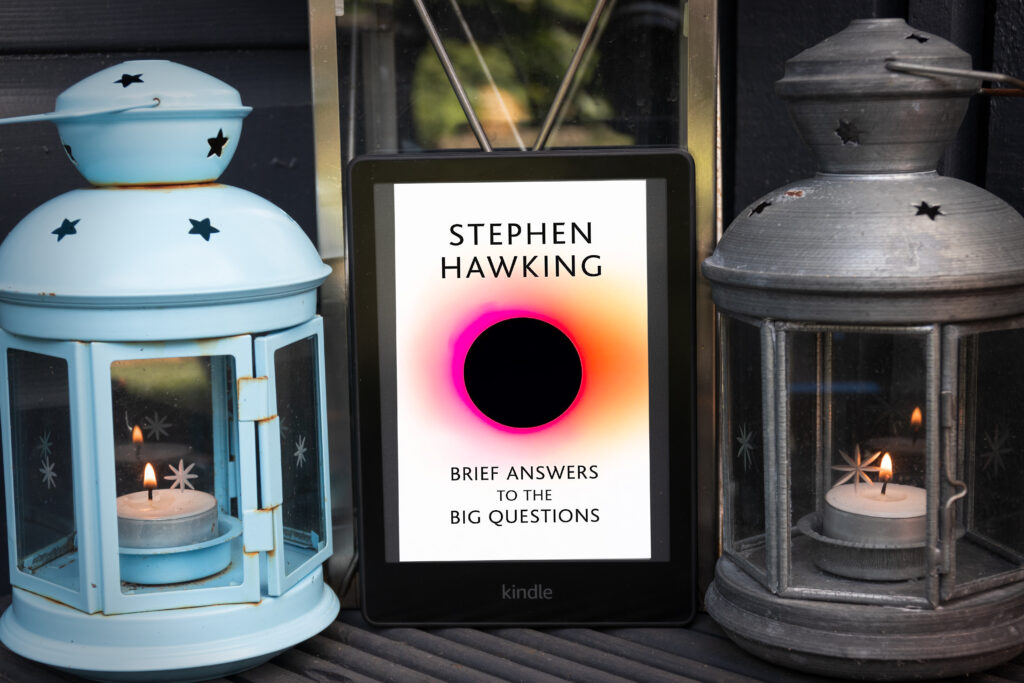
Three Sentence Summary
Professor Steven Hawking provides a thought provoking book demonstrating his wisdom and unique way of thinking. The answering of some of humanities toughest questions in a succinct, simple, yet intellectual way not only makes this book accessible but a pleasure to read. A brilliant last entry and parting gift from a true genius of our time – he will be missed.
Table of Contents
ToggleMy Thoughts
Favourite Quote
‘For each mind to achieve it’s full potential, it needs a spark. The spark of enquiry and wonder.’
Throughout all this doom and gloom Professor Hawking’s still manages to convey optimism and an overall sense of inspiration. All the questions posed will most likely be further explained in the coming decades by new minds inspired by the work of geniuses past and present including Hawking’s. It’s this optimism that turns these questions from all doom and gloom into problems that are solvable providing hope for the future of humanity. This book is therefore well worth a read to enlighten you to the mind of a genius and some of the most pressing problems of humanity.
If you’ve read this book already I’d love to know your thoughts. Let me know down below!


